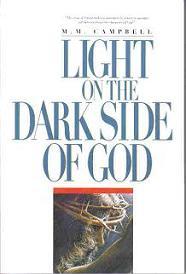God Destroys by Trying To Save
 Many insist that God destroys, that it’s His prerogative to personally administer punishment against all those who rebel against Him. And truthfully, a person doesn’t have to read too far in the Bible to realize that He, indeed, does claim to destroy men. The million dollar question is how. Given the fact that His justice is mercy—not punishment—how can we understand His claim to destroy men?
Many insist that God destroys, that it’s His prerogative to personally administer punishment against all those who rebel against Him. And truthfully, a person doesn’t have to read too far in the Bible to realize that He, indeed, does claim to destroy men. The million dollar question is how. Given the fact that His justice is mercy—not punishment—how can we understand His claim to destroy men?
Destruction or Salvation: We Decide, Not God
This never made sense to me for the longest time. Yet light came at last through the story of the emancipation of the slaves from Pharaoh, long ago in Egypt. It’s a pretty simple solution actually. God presented the truth to Pharaoh, and Pharaoh had to decide, as we all do, how he would respond. If no truth had been presented to Pharaoh, then his heart could not have been hardened against God. However, when truth is presented and we reject it, then that rejection results in hardening of our hearts.
God’s truth and love, in all of its warm, cheerful brightness, can only do two things. It can either draw us to Him or harden us in rebellion. There is no middle ground, no lukewarm fence to sit on.
“Love in all its warmth and radiance either draws a person to it or hardens that person’s heart. For this reason, though they cannot see it, love can shine on that person, and it’s shining only brings out the rebellion that destroys them.” – Jean Sheldon
God knows that presenting the truth is fraught with the danger that men might reject it, but how else can God reach their hearts and save them? Even though God, in His foreknowledge, knew that Pharaoh would rebel against the truth, He also knew that only the presentation of truth can overthrow the lies men have believed and set them free (John 8:32). It was because God loved Pharaoh (and all of the Egyptians), that He would not deny him every opportunity to be saved. So, sink or swim, He presented the truth to Pharaoh, as He has to all people at all times.
“God is for us and therefore opposed—utterly, eternally and passionately opposed —to our destruction. That opposition, that fiery and passionate and determined “No!” to the disaster of the Fall, is the proper understanding of the wrath of God. Wrath is not the opposite of love. Wrath is the love of God in action, in opposing action.” – C. Baxter Kruger, Jesus and the Undoing of Adam
God Destroys by Trying To Save
The wrath of God is His love in action—in apposing action.
Let those words sink in.
It is the love that will not let them go that ultimately drives those who reject God to their destruction. He pursues men with passionate compassion—at last becoming intense grief—until their hearts are either melted or hardened. God cries out in passion and grief and ends by saying He will not come in wrath:
So My people are bent on turning from Me.
Though they call them to the One on high,
None at all exalts Him.
How can I give you up, O Ephraim?
How can I surrender you, O Israel?
How can I make you like Admah?
How can I treat you like Zeboiim?
My heart is turned over within Me,
All My compassions are kindled.
I will not execute My fierce anger;
I will not destroy Ephraim again.
For I am God and not man, the Holy One in your midst,
And I will not come in wrath.
Hosea 11:7-9 NASB
Indeed, He comes to man in one role only: as a loving Savior. Yet the effect of that effort is not always a saving one. With many, the effect is to harden them in rebellion (like Pharaoh of old) and to cause them to withdraw themselves from the voice of loving entreaty into sin’s ravenous jaws.
The more God exerts His saving power, the more men are driven by their rejection of it until dark rebellion and lies totally obliterate the gentle voice of entreaty. Though God’s grace never ends and He continues to woo men with tender proposals, the rejecters of His mercy can no longer hear them. And all along our gentleman God, true to His character, takes responsibility for what men themselves do—claiming that he withdraws when men did the withdrawing, that He turns men over to destruction when they turned themselves over, and that He hides Himself from them when they did the hiding.
It is in this sense that God destroys, though none could call Him a destroyer. The pleas of Love ruin men if they cannot save them.











